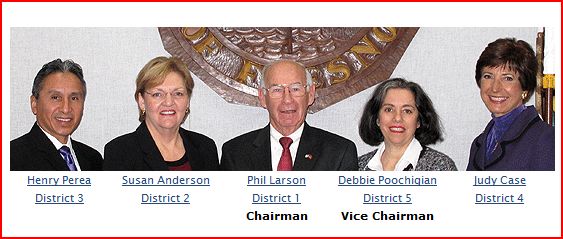
By Gary Lasky
The Fresno County Board of Supervisors voted on September 20 to reject up to $28 million in federal healthcare funding for Fresno County’s low-income residents. Although there were numerous unanswered questions about the overall impact of the proposal—from the Supervisors and the public—a 3-2 majority of the Board opted to withdraw its application for the funding before getting those questions answered.
The Board had a rare opportunity to expand coverage to approximately 12,000 county residents and provide as many as 550 jobs from newly available funds as part of the federal government’s Low-Income Health Program (LIHP).
All 58 California counties, including Fresno, had begun plans to implement LIHP. Nevertheless, the Board voted to withdraw Fresno County from the program.
With that vote, Fresno County stands to lose as much as $28 million in federal funds and is the first and, to date, the only county in the state not to participate in the program.
Richard Yanes, executive director of Fresno Metro Ministry, expressed dismay, “Our poverty level here is one of the greatest in the country and for the Board of Supervisors not to go forward with this is just very, very difficult to understand.”
In a recent interview on Channel 30 Action News, District 3 Supervisor Henry Perea supported these concerns, “For us to walk away from the amount of money that’s available to create a new more efficient healthcare delivery system I think it would be really irresponsible on the part of the county as well as Community Hospital, to walk away from that.”
At a Sept. 15 press conference, Yanes summarized the problem, “The key is we’re walking away from a huge pot of money for people who need healthcare services.”
Kevin Hamilton, deputy chief at Clinica Sierra Vista in Fresno, summarized the LIHP program benefit, “This money will allow us to provide healthcare to thousands of people in Fresno County who currently don’t enjoy that right.”
Also at the press conference, homecare worker Reynaldo Valdez told his story of how he cares for his wife, a Medi-Cal recipient eligible for In-Home Supportive Services (IHSS), but that he himself is uninsured. With the county cutting funding for the IHSS program, Reynaldo has not consistently worked the 80 hours a month necessary to be eligible for healthcare benefits. He lives with diabetes and must pay Clinica Sierra Vista for his medications. Reynaldo would have been eligible for coverage under the LIHP.

The LIHP is a product of two major developments in health policy: the passage of the Affordable Care Act by Congress last year and the agreement of California’s “Bridge to Reform” Medicaid waiver, which will help California prepare for and implement the new federal healthcare law.
The Affordable Care Act expands Medicaid in 2014 to up to 2 million Californians, largely those who are below the poverty level but do not qualify for assistance now. The new federal law also allows states to start these expansions early, with 50/50 federal matching funds. Aware that the state has no funds to pursue expansion, the Medicaid waiver allows California counties to use resources that already go to indigent care to draw down these federal funds.
Health Access community organizer Rose Auguste estimates that a few hundred jobs in Fresno County would have been created by the LIHP.
In addition:
- Fresno could have used the LIHP to bolster its healthcare system by having uninsured people who might end up in the emergency room instead get coverage and cost-saving primary care in a network-based within the county’s safety net—and have these new federal dollars support that safety net.
- The LIHP would have ensured that these patients got treated and into systems of care before 2014 and thereby be ready to get full Medi-Cal (or exchange-based) coverage on day one, maximizing enrollment and the federal funds for the county.
- This expansion would not have been a long-term obligation on the county. The more people that are enrolled in these programs, and thus quickly shifting to Medi-Cal in 2014 with 100% funding by the federal government, the more county resources could be refocused to better serve the medically indigent who would remain uninsured after 2014.
- In Fresno County, according to 2009 California Health Interview Survey (CHIS) data, 57,000 people living under 114% of the federal poverty level reported not having insurance the entire past year, whereas an additional 46,000 had insurance for only part of the year.
The county health officer, Dr. Ed Moreno, opposed the application. He stated that his office had looked at the LIHP in conjunction with Community Medical, with which the county currently has a contract to provide healthcare for the indigent, for more than a year. Moreno noted that other providers had been involved in this process via meetings that were open to the public. However, some of those providers said the meetings were informational in one direction without sufficient opportunity for feedback.
Assuming there was a year of research to back up the recommendation of Moreno and Community Medical, precious little of that research was made available to the public or, apparently, the Board. Presumably, the research looked at a variety of scenarios should the funds be accepted, including better delivery mechanisms. Wouldn’t it have been beneficial for us to know the cost of each scenario, what the risks would be and who would assume those risks, how the options would affect those served, and the advantages and disadvantages of each? When questioned about this, Moreno disingenuously stated that Board had not made looking at other options part of his purview.
Fresno can ill afford to turn down $28 million of federal funds. The health of our community is at stake.
*****
Gary Lasky is an environmental and community activist in Fresno. Contact him at data.nations@gmail.com or 559-790-3495
